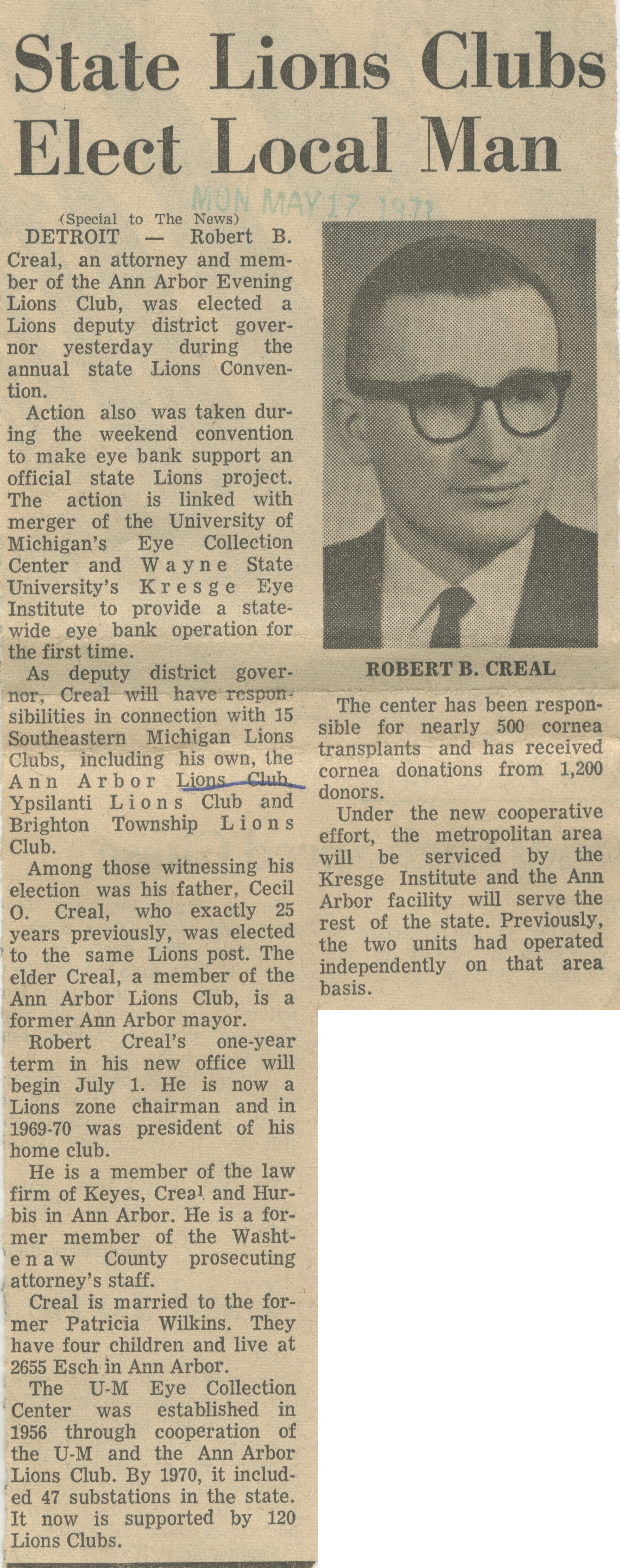State Lions Clubs Elect Local Man

State Lions Clubs Elect Local Man
(Special to The News)
DETROIT — Robert B. Creal, an attorney and member of the Ann Arbor Evening Lions Club, was elected a Lions deputy district governor yesterday during the annual state Lions Convention.
Action also was taken during the weekend convention to make eye bank support an official state Lions project. The action is linked with merger of the University of Michigan’s Eye Collection Center and Wayne State University’s Kresge Eye Institute to provide a statewide eye bank operation for the first time.
As deputy district governor, Creal will have responsibilities in connection with 15 Southeastern Michigan Lions Clubs, including his own, the Ann Arbor Lions Club Ypsilanti Lions Club and Brighton Township Lions Club.
Among those witnessing his election was his father, Cecil O. Creal, who exactly 25 years previously, was elected to the same Lions post. The elder Creal, a member of the Ann Arbor Lions Club, is a former Ann Arbor mayor.
Robert Creal’s one-year term in his new office will begin July 1. He is now a Lions zone chairman and in 1969-70 was president of his home club.
He is a member of the law firm of Keyes, Creal and Hurbis in Ann Arbor. He is a former member of the Washtenaw County prosecuting attorney’s staff.
Creal is married to the former Patricia Wilkins. They have four children and live at 2655 Esch in Ann Arbor.
The U-M Eye Collection Center was established in 1956 through cooperation of the U-M and the Ann Arbor Lions Club. By 1970, it included 47 substations in the state. It now is supported by 120 Lions Clubs.
The center has been responsible for nearly 500 cornea transplants and has received cornea donations from 1,200 donors.
Under the new cooperative effort, the metropolitan area will be serviced by the Kresge Institute and the Ann Arbor facility will serve the rest of the state. Previously, the two units had operated independently on that area basis.
Article
Subjects
Ann Arbor Evening Lions
Michigan Eye Collection Center [Eye Bank]
Kresge Eye Institute
Ann Arbor Lions Club
Ypsilanti Lions Club
Clubs & Organizations
Keyes Creal & Hurbis Law Firm
Washtenaw County Prosecuting Attorney
Has Photo
Old News
Ann Arbor News
Robert B. Creal
Cecil O. Creal
Patricia Creal
2655 Esch